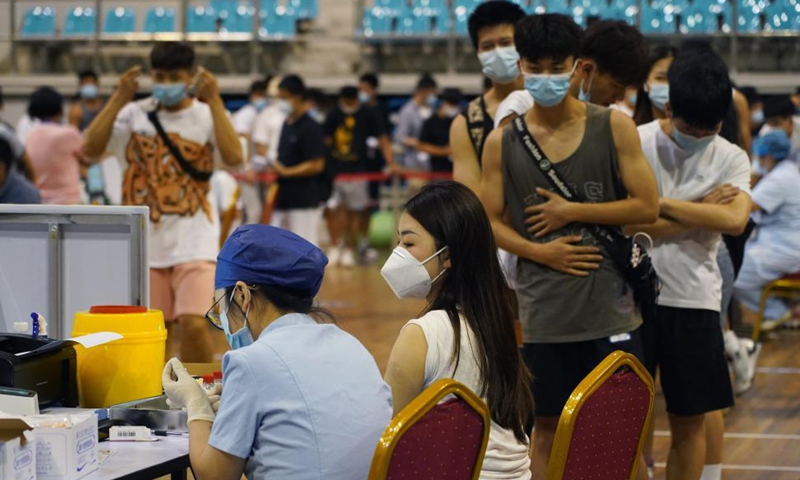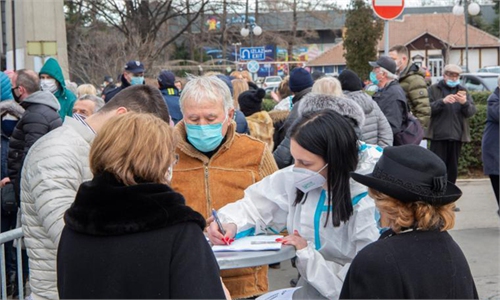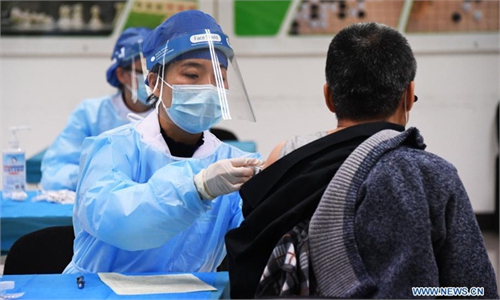No vaccine, no education. Strict inoculation policy in Guangxi cities sparks controversy

Medical workers administer COVID-19 vaccines to college students in Nanchang, capital of east China's Jiangxi Province, June 4, 2021. A temporary vaccination site is newly set at a stadium, with daily inoculation capacity of about 5,000. Photo: Xinhua
Students may not be allowed to enter school campuses if their parents do not receive COVID-19 vaccines, according to a new policy in Guiping, South China's Guangxi Zhuang Autonomous Region. The measure has sparked controversy as it's the strictest measure so far to push for inoculation.At least two regions in Guangxi Zhuang Autonomous Region released such notices, including Guiping and Pingliu cities. They require family members who are physically fit to receive vaccines to get one if they have a family member in kindergarten, middle school or high school, otherwise, students won't be allowed to go to school, according to notices released by local anti-epidemic command teams from the two regions on Monday. "Please get vaccinated as soon as possible in case your children cannot enter school," the notice reads.
A working staff from Yifu Primary School in Guiping city confirmed with the Global Times on Wednesday that the school will implement the policy by asking students' parents to get vaccinated when the new semester begins in September.
As China's vaccination timetable enters the second half phase, local governments are pressured with completing the vaccination goal. This comes especially at a critical time when China has seen at least two domestic outbreaks triggered by the Delta variant. As of Tuesday, about half of China's population has been vaccinated.
Liu Changsong, a lawyer with Beijing Mugong Law Firm, told the Global Times on Wednesday that asking students to share joint liability with people who do not receive vaccines may be violating the Compulsory Education Law as the law protects the rights of students to receive education.
Similar to the epidemic control, vaccination poses another test for grass-root governance. But one-size-fits-all and radical approaches are not proper. Vaccination should be voluntary, which means individual choices must be respected and any special cases given a priority, Liu said.
Some netizens on Sina Weibo who chose not to receive the vaccine for various reasons posted comments saying their choices should be understood and respected.
Prior to the notices getting released by Guangxi, many regions also issued notices saying people who are not vaccinated will "in principle" not be allowed to enter public venues including schools, nursing houses, railway stations, hotels and markets starting from late July.
After the policy sparked controversy online, local governments in Zhejiang and Jiangxi provinces clarified that "in principle people who do not get jabs should not enter public venues" is not equal to "forcing people to get vaccines." People are required to get contraindication certificates if they do not get jabs.




